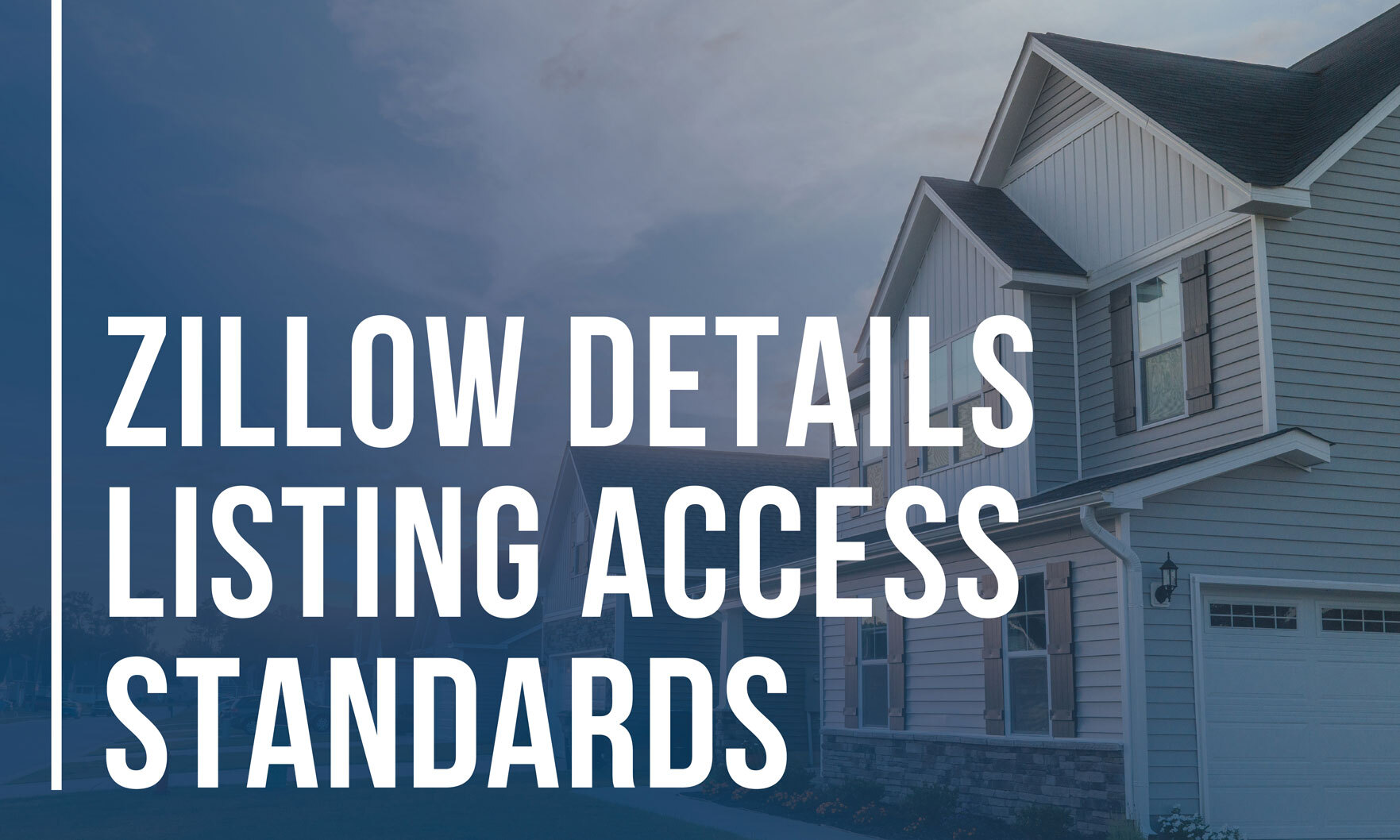Home listings that are not entered into an MLS within one day of public marketing will not be published on Zillow or Trulia for the life of the listing agreement between the seller and their agent, beginning June 30.
That’s the bottom line of Zillow’s new listing access standards policy that was recently spelled out in a memo to agents. Zillow will conduct a phased rollout of the standards beginning in many large U.S. markets and expanding nationally throughout the summer.
The policy applies to all listings covered by an exclusive for-sale listing agreement between a broker and a seller, regardless of the rules of a local MLS. They do not apply to new construction being marketed directly by a builder, for-sale-by-owner listings or rentals.
“Our standards are guided by one simple, powerful principle: If a listing is marketed to some buyers, it should be marketed to all buyers,” Zillow wrote.
Why now
Zillow unveiled the outlines of its ban on privately marketed or “pocket” listings in April, following the National Association of REALTORS’® announcement that it would update its Clear Cooperation Policy to allow sellers to delay marketing their properties. Several brokerages, including eXp Realty, NextHome and West USA Realty, have signed on to Zillow’s policy; Redfin followed Zillow’s lead shortly after it first announced the rule.
To Zillow, the benefits of its policy are manifold.
For agents, it allows them to deliver the best possible service to their clients by providing equal access to all listings through a transparent marketplace.
Sellers, meanwhile, benefit from maximum exposure for their listings, which research has shown typically boosts sale prices and shortens days on market, Zillow said, adding that selling off the MLS can disproportionately impact communities of color, to the tune of $6,000 or more per sale on average.
Buyers, meanwhile, enjoy the peace of mind that comes with knowing they have seen all available listings, which reduces frustration and increases trust in the marketplace, Zillow said. Furthermore, limiting who can and can’t see a listing opens an agent up to fair-housing risks.
“Practices that selectively share listings — such as with buyers or sellers who agree to work with an agent due to the promise of exclusive access — create confusion, harm consumers and erode trust in the marketplace,” Zillow said. “It’s a bait-and-switch move, where agents or brokerages try to get the best of both worlds — dangling a listing to gain more business, only to turn around and market it widely later.”
Rollout
Beginning May 28, Zillow will notify agents if a listing does not meet its listing access standards. Each non-compliant listing will be logged as a single violation, and the agent will be notified by phone and email.
Starting June 30, an agent’s third non-compliant listing and any subsequent non-compliant listings will be blocked from Zillow and Trulia as long as a listing agreement between the agent and seller is in place. Compliant listings from the agent will not be affected by previous violations.
Non-compliant listings include those that are publicly marketed but not entered into the MLS and available via IDX or VOW within one business day; listings that are shared with buyers who are not already clients of a brokerage; and listings marketed on a public-facing platform like a brokerage’s website without being entered into the MLS.
Examples of public marketing that would trigger the listing rule include social media posts, display on a brokerage’s website, yard signs, open houses and virtual tours.
Exceptions to the rule
Office-exclusive listings are allowed as long as a homeowner signs a seller disclosure and the listing is only shared with agents in the office or by one-to-one communication with current clients.
Coming-soon and delayed-marketing listings are permitted if they are entered into the MLS within one business day of public marketing and made available to all MLS participants via IDX or VOW listing feeds.
Agents may share sneak peeks of listings on social media or in email newsletters if they do not share details like price and address or include a call to action, such as an invitation to tour the home or offers to see a link to the property via direct message.
If a homeowner specifically requests an off-market listing due to privacy or safety concerns, the agent can remain in compliance with Zillow’s standards by posting the home on the MLS and opting-out of internet display. The seller could also hide the home address but still publish it for sale on the MLS and other sites that receive MLS feeds for maximum exposure.
If a seller insists on keeping the listing completely private, they must provide written instructions to the listing agent not to share it via the MLS or online and sign a waiver. The listing may only be shared among agents within the same brokerage or between the listing agent and their individual clients.
“We recognize that a small number of sellers prioritize privacy over maximizing price or getting a fast sale, however for most sellers, broad exposure creates the best outcome — a faster sale for more money,” Zillow said. “Zillow’s standards are focused on listings that aren’t truly private — like listings that may be publicly advertised on a brokerage’s website but not entered into the MLS for a period of time.”

